An Inside Look at Genera’s Journey Into Sustainable Product Creation
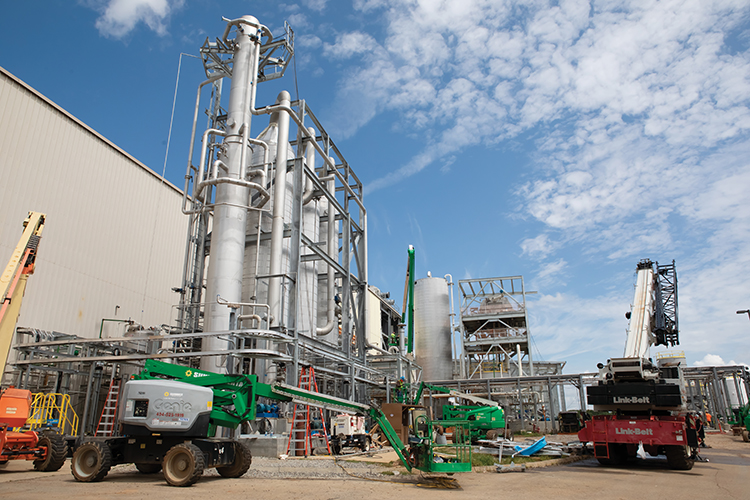
Interest in growing the feedstock for Genera’s fiber mill in Vonore has increased significantly as the facility moved from the construction phase to commercial operations. Photo credit: Nathan Lambrecht
The next time you order takeout, pay attention to the containers. If your plate or bowl is a biodegradable, compostable material, they may have been produced using crops grown on a Tennessee farm.
That’s because a couple of years ago, Genera Inc. decided to make a transition.
Located in Vonore, about 35 miles southwest of Knoxville alongside Tellico Lake, the company had grown by leaps and bounds since its founding in 2008. It began with a focus on supplying agricultural crops as feedstocks (raw materials) to manufacturing facilities that could convert them into fuels, chemicals and other related products. But three years ago, the business decided to turn its attention to sustainability.
“We looked at several different growth opportunities and decided to develop our own manufacturing capabilities, leveraging our agricultural expertise to produce products for consumers,” says Dr. Sam Jackson, vice president of business development. Jackson grew up on a beef cattle farm in the mountains of West Virginia but has been a loyal Tennessean ever since attending the University of Tennessee for college. He’s worked with Genera since 2009. “We’re now focused on sustainable utilization of agricultural materials for products that benefit rural communities and consumers.”
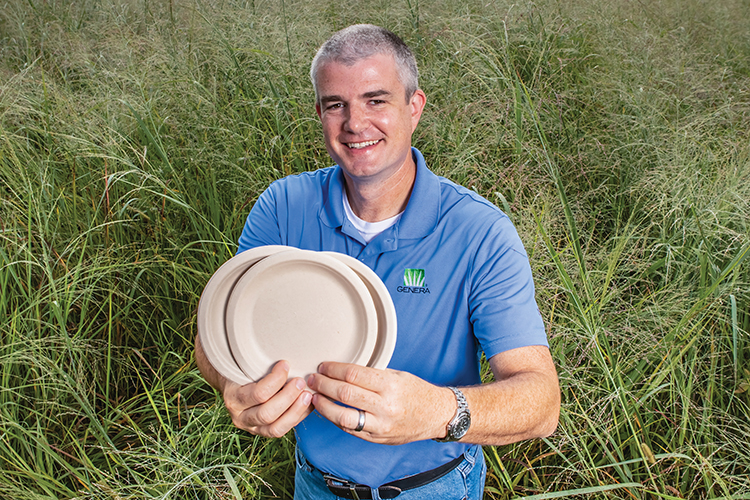
Genera’s Sam Jackson holds biodegradable, compostable plates made using agricultural pulp fiber from Tennessee-grown crops such as switchgrass. Photo credit: Nathan Lambrecht
From Farm to Fiber
Genera has licensed a proprietary process for developing pulp fiber from non-woody plant materials, specifically straws and grasses such as switchgrass. Jackson says it’s very different from the technologies used to pulpwood.
“Essentially, any time you produce pulp fiber from plant materials, you are trying to separate the cellulose from the other components of the plant,” he says. “Separating cellulose in herbaceous plants is different than doing the same thing in wood due to the differences of the plant structures. Our process is specifically designed to work with herbaceous plants and separate the cellulose in a manner that is very energy- and water-efficient.”
The end result is a sustainable and high-quality fiber that can be used in numerous applications, from towels, tissues and other paper materials to food service and packaging products like plates, bowls, takeout containers and more, which Genera markets under the brand Earthable®.
“Producing sustainable products in the United States is critical to agriculture.”
– Dr. Sam Jackson, vice president of business development for Genera, Inc.
Genera works with several dozen farmers and landowners in the valley between Knoxville and Chattanooga to generate a supply of the raw materials.
As the company continues to expand, Jackson says they expect to have approximately 100 to 125 contracted growers to meet the ongoing feedstock needs at their production facility in Vonore for many years to come.
“Switchgrass will be a primary focus of our production, along with a few other feedstocks like biomass sorghum and wheat straw,” Jackson says.
See more: Middle Tennessee Research Center Uses Horses to Manage Cattle
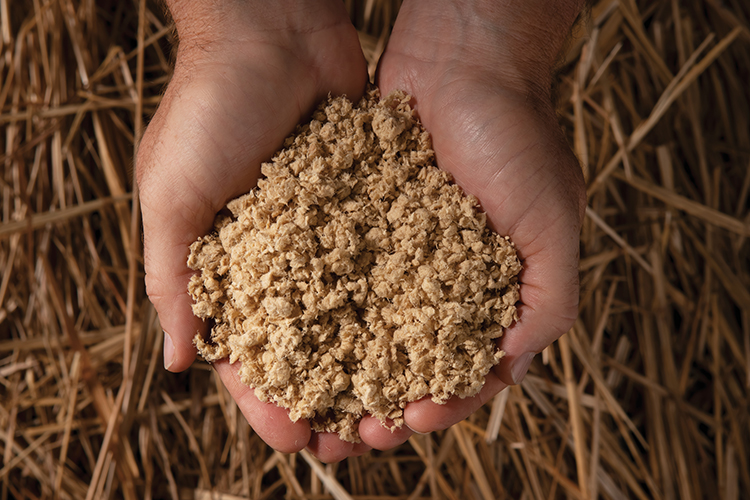
Photo credit: Nathan Lambrecht
Eco-Friendly Alternatives to Plastic
The team at Genera understands the importance of sustainable product creation. The volume of nonreusable waste produced by modern society continues to increase, especially with the continued production of single-use products like polystyrene (Styrofoam) and plastics, which create significant issues in regard to landfills and water pollution.
“These plastics don’t break down in the environment,” Jackson explains. “You could put a plastic plate in a landfill, and we could likely dig it up 500 to 1,000 years later and find that same plate relatively intact. Similarly, polystyrene often winds up in waterways, particularly our rivers, lakes and oceans. It often washes up on beaches and pollutes aquatic environments.”
See more: How One Sweetwater Farm is Focusing on Sustainability
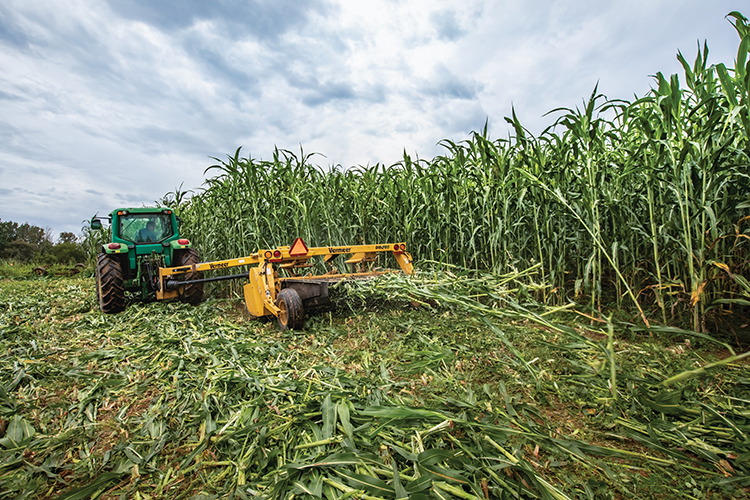
Photo credit: Nathan Lambrecht
In an attempt to combat these issues, Genera has created products that provide the same service as many of these plastic items but will break down and dissipate into the soil with no harmful consequences. Its food service products, like takeout containers, are fully compostable and biodegradable.
“Producing sustainable products in the United States is critical to agriculture,” Jackson says. “By creating these products from agricultural materials, we’re creating new markets for farmers. All farms have land that is low in productivity or that isn’t used for other purposes. Switchgrass and related crops can adapt to these environments and generate an economic return to the farm that may otherwise not be available.”
Genera’s products aren’t the only ag-related eco-friendly products made in Tennessee. Here are a few other companies working to help locals go green: Puffy Stuff: Thanks to Puffy Stuff in Lebanon, those pesky packing peanuts are becoming a lot more environmentally friendly. These biodegradable items are crafted from grain proteins, can be reused and even can be utilized as fertilizer in the garden. NouriTech: This growing company located in Memphis is on the move to produce sustainable animal feed using traceable ingredients for everything from fish and pets to livestock in commercial quantities. Operating at full capacity enables them to produce more than 200,000 metric tons of feed per year. UTIA: The University of Tennessee Institute of Agriculture is conducting research on biodegradable plastic mulch, a wonderful alternative to the traditional plastic used to control weeds and conserve water.Sustainability Throughout the State




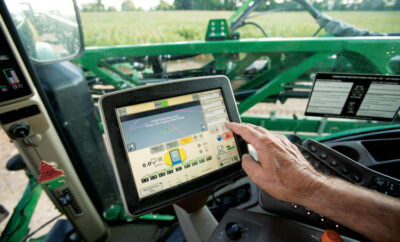
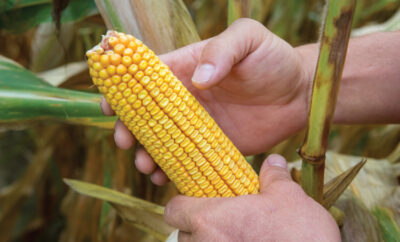









Leave a Comment